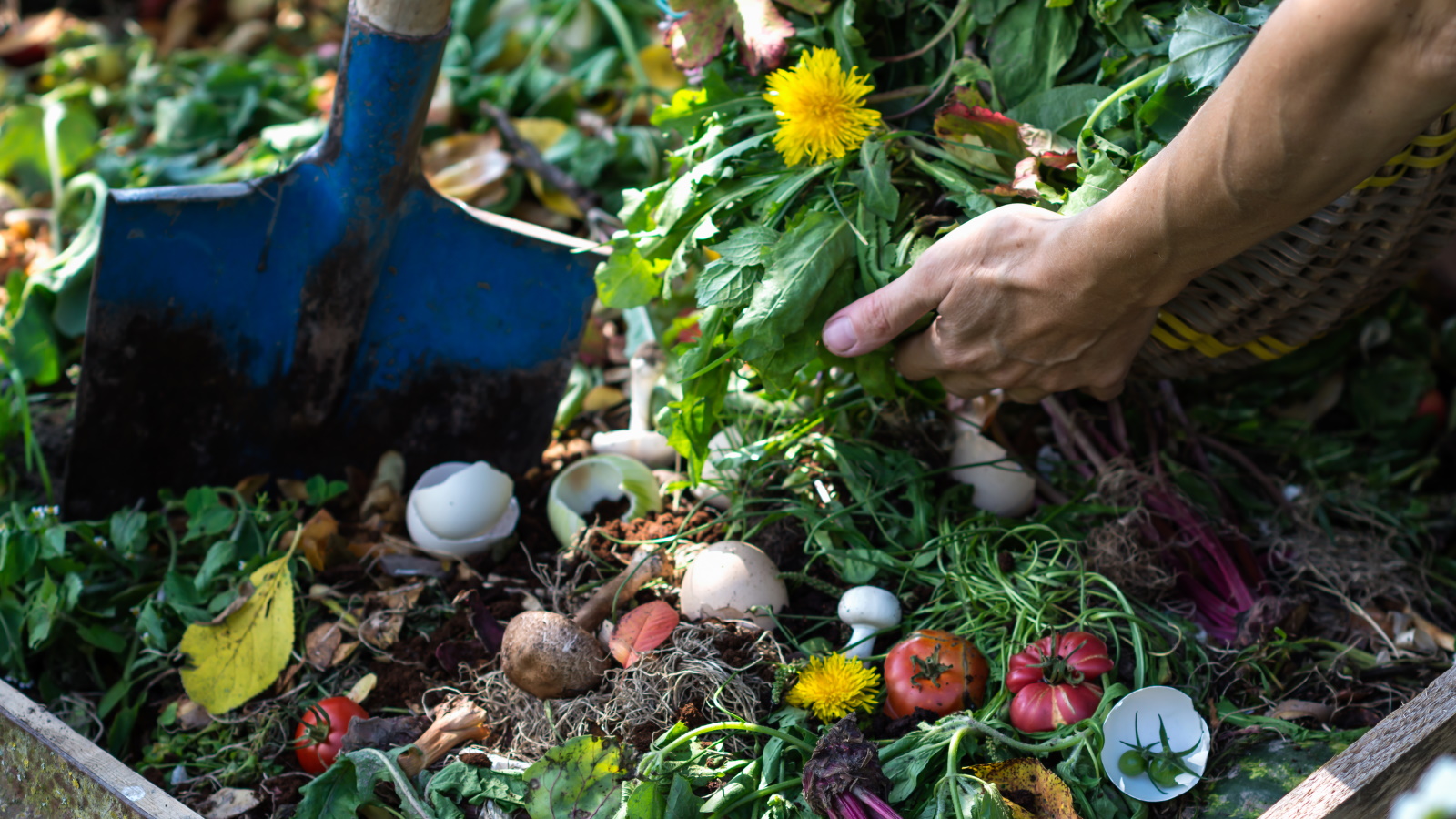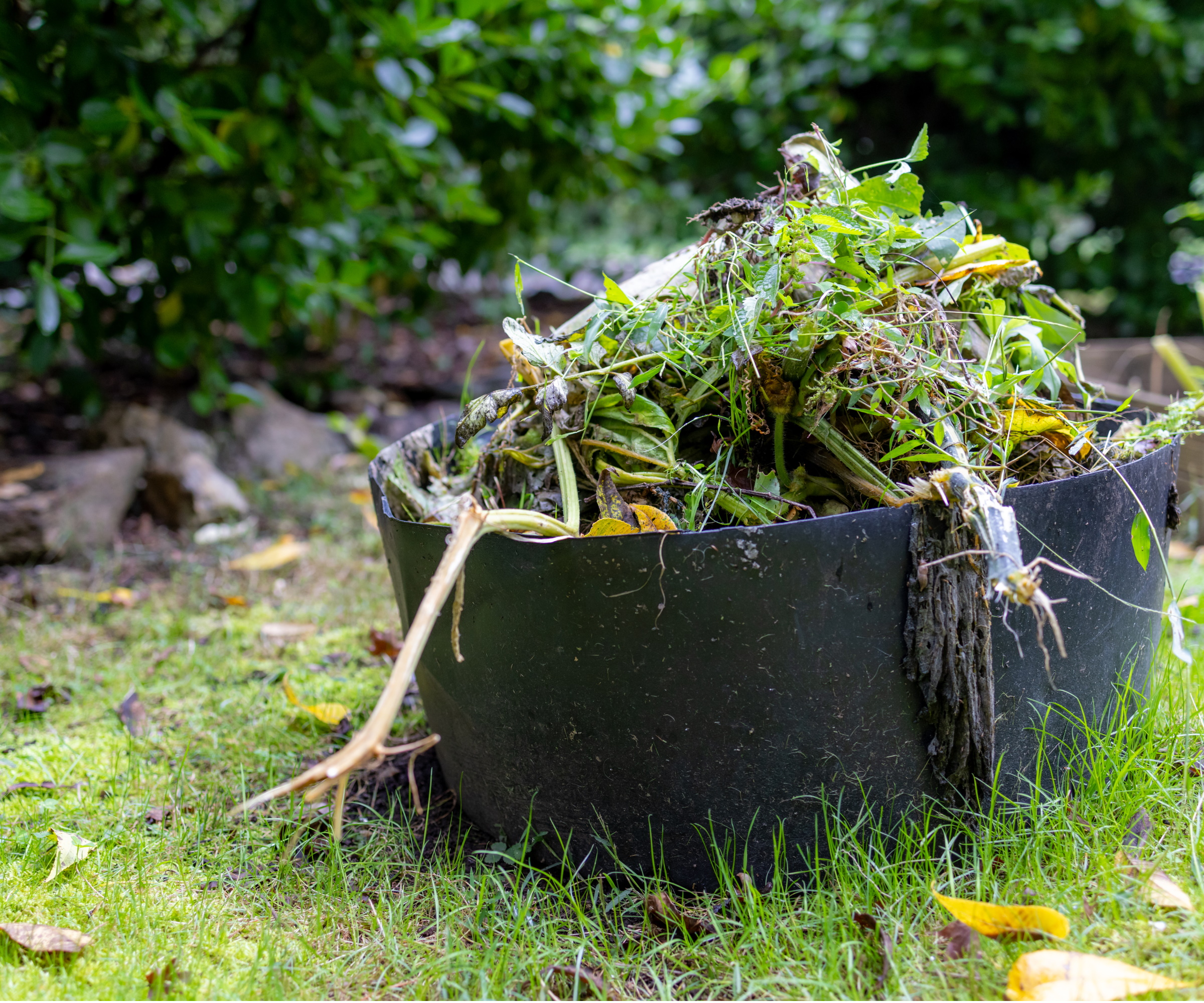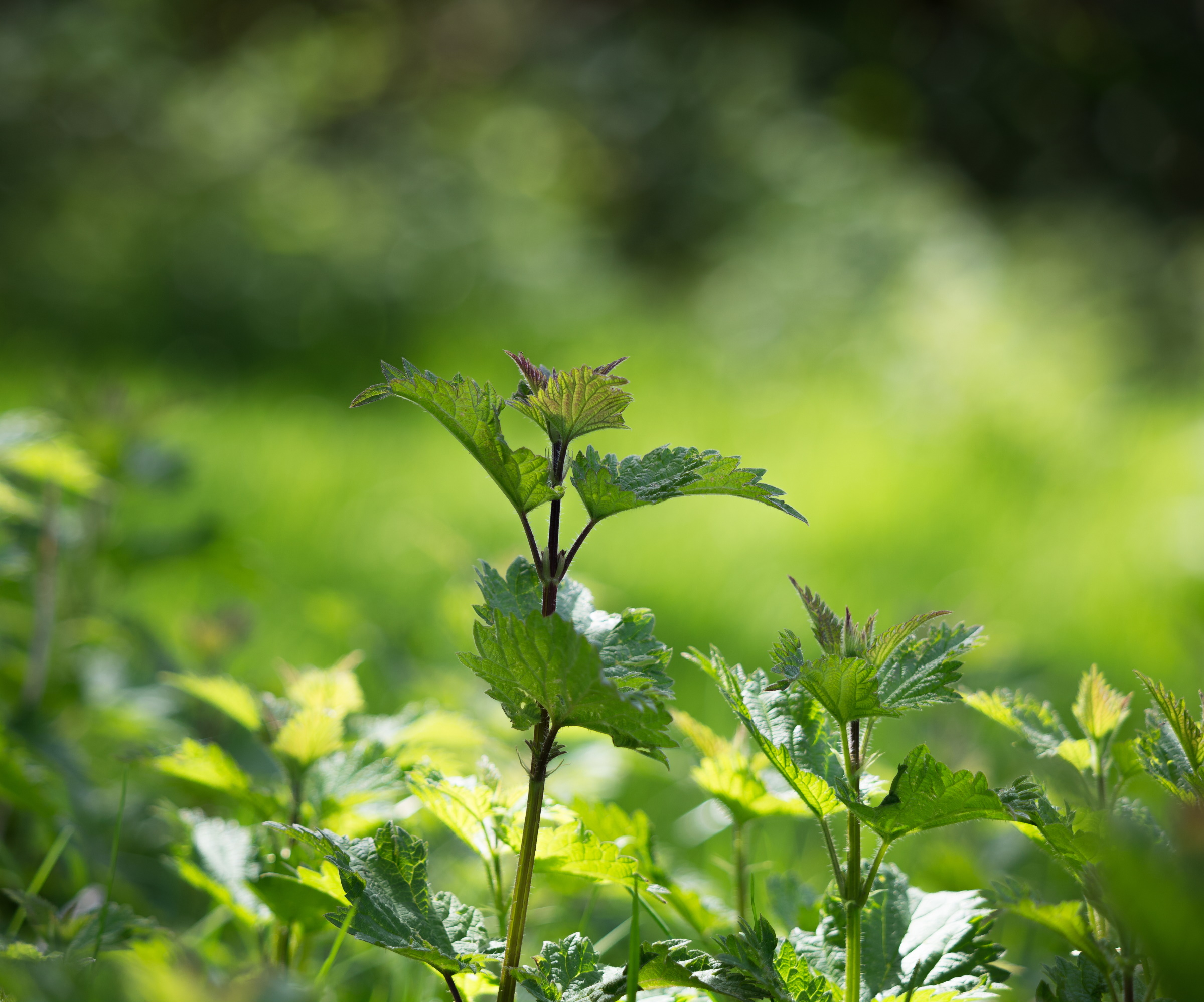
It might surprise you to know that you actually can compost weeds. Although it sounds problematic, due to the tendency for weeds to spread fast, it is possible to compost weeds effectively so they don't return - all while offering nutrient value to your compost.
It can take some time to wrap your head around what to put in your compost bin when you first start making compost, but you shouldn't be scared to try more unusual compost ingredients. Of course, there are certain weeds you should avoid putting in your compost heap that present the risk of coming back. However, some weeds can be put in your compost bin safely, contributing to a valuable fertilizer for your plants.
Here, compost experts have shared everything you need to know about how to compost weeds and which ones to avoid so you can add them to your heap correctly.
Tips for composting weeds

Keeping plant material aside when you get rid of weeds can provide a valuable ingredient for composting. This is because you need plenty of green materials in your compost to keep it productive and stop compost smelling bad.
Weeds that are safe to compost include annuals without seeds, dandelions, clover, and nettles. However, you do need to make sure the weeds are in the correct state to compost.
'To compost weeds effectively, ensure that those with seeds or invasive roots are either dried out entirely or 'solarized' under a plastic sheet in direct sunlight for several days, a process that helps neutralize seeds and prevent regrowth,' advises Lauren Click, founder of Let's Go Compost.
As well as this, take the extra precaution of composting weeds at a high temperature (above 130°F), Lauren notes. Hot composting will reduce the ability for any seeds to germinate. 'Breaking down weeds into smaller pieces also enhances microbial access, speeding up composting and reducing the risk of weed seeds sprouting in the compost,' Lauren adds.
To effectively break down weeds, experts also recommend getting the carbon-nitrogen ratio right. 'Keep adding lots of high-carbon materials to your weed compost and give it extra time to thoroughly break down before spreading it,' says Christen Waddell, Farmstead Manager at Blackberry Farm.
This thermometer has a colored block identification and clear scale display for immediate identification of compost temperature.
Weeds you shouldn't compost

Not only do you need to know how to compost weeds correctly, but you also need to be aware of which weeds are invasive plants that are best to avoid adding to a compost heap.
'Some weeds, like bindweed, Japanese knotweed, and couch grass, are particularly resilient and can survive typical composting conditions, especially if roots or seeds aren’t fully decomposed,' says Lauren.
Problematic weeds like this often contain structures that make them resistant to low-temperature composting, Lauren explains. You should only ever compost them in a hot composter, like in this insulated compost bin from Amazon, or dispose of them separately.
If you're nervous about these weeds spreading and don't want to have to deal with the chore of getting rid of Japanese knotweed, avoid putting them in your compost.
'The reasons for this is you'll end up with compost that will just be adding more problematic weeds into your garden,' Christen explains.
'Invasive species have a higher potential for regeneration; even a small piece of root in finished compost can establish and spread in a garden, making careful weed selection crucial,' Lauren adds.
Something else to take into consideration when deciding which weeds to compost is whether they have any chemicals on them. 'Don't compost any weeds that have been treated with herbicides as these herbicides can find their way into your garden and cause damage,' warns Denis McCausland, horticulture expert and landscaper.
FAQs
Which plants can't go in compost?
There are a few plants you should avoid putting in your compost heap. This includes onions and garlic which have a strong scent that repels the worms, insects and microorganisms helping to breakdown your compost. Some food crops are also highly acidic and adding them to your compost heap can make your compost too acidic.
The rule of thumb with composting weeds is to avoid doing it if you're unsure whether the weed you're dealing with is safe to put in your compost bin. 'Be careful to also not add diseased plant material to your compost pile unless you are certain that your compost will get hot enough to kill the disease organisms,' advises Christen. We also recommend reading up on composting mistakes to avoid to aid your success with composting.







